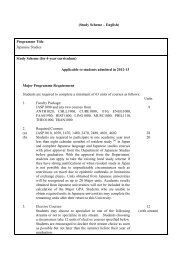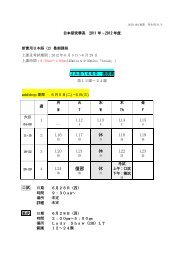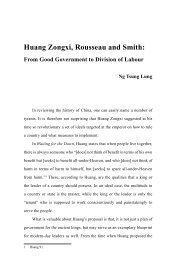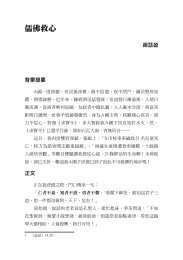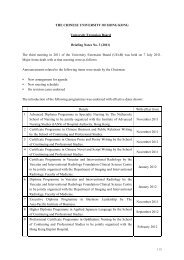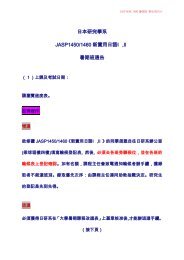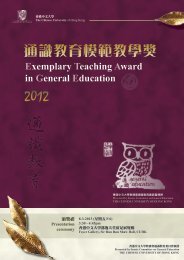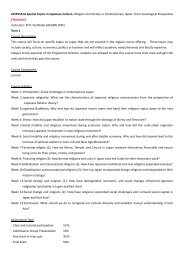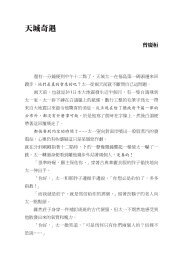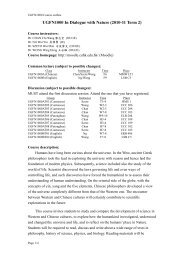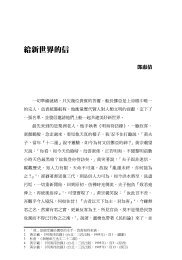ä¸è¼å ¨æ¸ - The Chinese University of Hong Kong
ä¸è¼å ¨æ¸ - The Chinese University of Hong Kong
ä¸è¼å ¨æ¸ - The Chinese University of Hong Kong
You also want an ePaper? Increase the reach of your titles
YUMPU automatically turns print PDFs into web optimized ePapers that Google loves.
Susan Gano-Phillips, Affective Learning in General Education 27<br />
Program-level assessment <strong>of</strong> learning outcomes presents its own unique<br />
set <strong>of</strong> challenges, particularly in GE programs, This is because such programs<br />
are typically comprised <strong>of</strong> a large array <strong>of</strong> courses from which students make<br />
selections from various categories. Thus, responsibility for the achievement<br />
<strong>of</strong> specific program outcomes is diffused, posing a problem for the assessment<br />
<strong>of</strong> the GE program. After all, GE courses are typically staffed by a loose<br />
collection <strong>of</strong> faculty culled together from across the university and among the<br />
various schools or colleges. More specifically, if no single course instructor<br />
feels “responsible” for the achievement <strong>of</strong> a specific affective learning<br />
outcome within the course that they teach, then no course instructor worries<br />
too much about the TLAs or assessment <strong>of</strong> that affective learning outcome,<br />
assuming other faculty will address the affective outcome in their courses. In<br />
the end, no one addresses the affective learning outcome in their course and<br />
the achievement <strong>of</strong> the outcome is left to chance. This is perhaps what has<br />
happened with most affective learning outcomes in higher education over the<br />
past several decades.<br />
<strong>The</strong>refore, it is incumbent upon institutions to carefully map which<br />
GE program outcomes are associated with which courses within the GE<br />
program, so that they can be reasonably assured that all students completing<br />
the general education program requirements (using various combinations<br />
<strong>of</strong> courses) have met the program outcomes. While an extensive discussion<br />
<strong>of</strong> the curricular mapping <strong>of</strong> GE programs is beyond the scope <strong>of</strong> this<br />
paper, resources are available to assist universities as they embark on this<br />
challenging task. Many institutions, for example, have recently seen virtue<br />
in the methodology <strong>of</strong> developing student portfolios as a way <strong>of</strong> capturing<br />
evidence that GE program learning outcomes are being achieved from the<br />
broad array <strong>of</strong> courses making up the students’ learning experiences. Many



